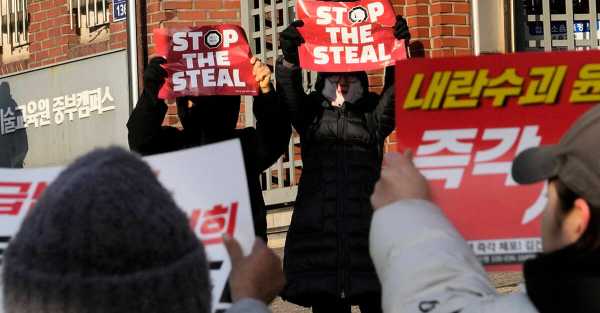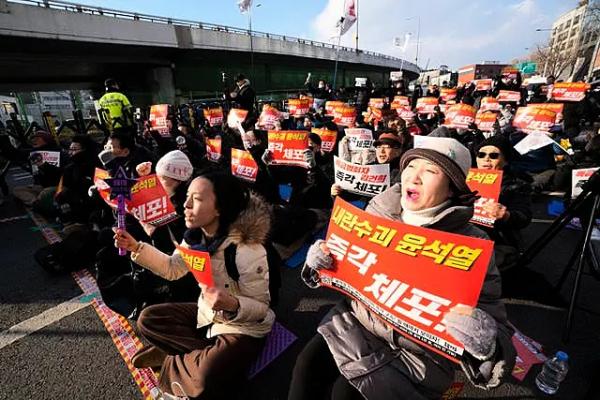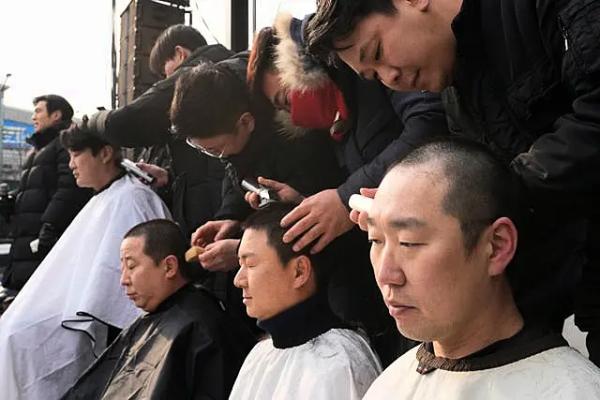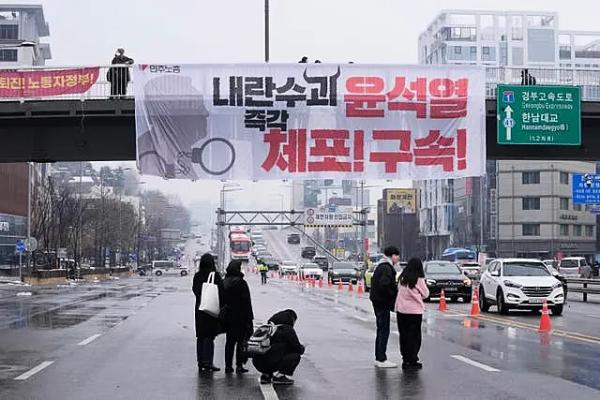
Lawyers for impeached South Korean President Yoon Suk Yeol have denounced efforts to detain him over his short-lived imposition of martial law last month.
The outcry came as the country’s acting leader expressed concern Wednesday over a possible clash between law enforcement agents and presidential security personnel.
As anti-corruption officials and police prepared another attempt to detain Mr Yoon following last week’s failed effort, the presidential security service fortified his compound with barbed wire and rows of tightly placed vehicles blocking the path to his residence.
The Corruption Investigation Office for High-Ranking Officials and police say they will make a more forceful effort to detain Mr Yoon, warning that they could arrest members of the presidential security staff if they obstruct efforts to seize the embattled president.
The office, which is leading a joint investigation with police and military, has been seeking Mr Yoon’s detention since he repeatedly ignored summons for questioning about whether his brief power grab on December 3 constituted rebellion.

In a news conference, Mr Yoon’s lawyers challenged the legitimacy of a new detention warrant issued Tuesday by the Seoul Western District Court, arguing that the anti-corruption agency lacks legal authority to investigate rebellion charges or order police to detain suspects.
Yoon Kap-keun, one of the lawyers, urged the anti-corruption agency to either indict the President or seek a formal arrest warrant – a process that would require a court hearing.
However, he said the President would only comply with an arrest warrant issued by the Seoul Central District Court, accusing the agency of deliberately choosing the Western District Court because of its allegedly favourable judge.
He did not give a clear answer when asked whether the President would appear at the Central District Court for a hearing on an arrest warrant, saying security issues must be settled first.
“People are suffering in the severe cold and government officials must be experiencing significant internal conflict,” the lawyer said, referring to daily protests by both Mr Yoon’s critics and supporters near his residence. “Please consider this as us taking a step back based on goodwill.”
The liberal opposition Democratic Party, which drove the legislative effort leading to the President’s impeachment on December 14, accused his lawyers of attempting to stall the process and urged the anti-corruption agency to swiftly execute the detainment warrant against him.

About 150 anti-corruption agency investigators and police officers attempted to detain Mr Yoon at his residence on Friday but retreated after a tense stand-off with the presidential security service that lasted more than five hours. The investigators have not yet made another attempt to detain him.
Police said they are considering “all available options” to bring Yoon into custody and haven’t publicly ruled out the possibility of deploying SWAT teams, although it’s unclear whether investigators would risk triggering a confrontation with presidential security forces, who are also armed.
In a government meeting on Wednesday, the country’s acting president, Deputy Prime Minister Choi Sang-mok, urged authorities to ensure “there are no injuries to citizens or physical clashes between government agencies” in any attempt to detain Mr Yoon.
In a parliamentary hearing on Tuesday, Oh Dong-woon, the anti-corruption agency’s chief prosecutor, criticised Mr Choi for instructing police to follow the presidential security service’s request to beef up security at Mr Yoon’s residence ahead of Friday’s detention attempt.

The police did not carry out Mr Choi’s instruction, and Mr Oh said the agency was reviewing whether Mr Choi’s actions constituted an obstruction of official duties.
Hours after Mr Yoon declared martial law and dispatched troops to surround the National Assembly on December 3, legislators who managed to get past the blockade voted to lift the measure.
Mr Yoon’s presidential powers were suspended after the opposition-dominated assembly voted to impeach him on December 14, accusing him of rebellion.
The Constitutional Court has started deliberations on whether to formally remove Mr Yoon from office or reinstate him.
Sourse: breakingnews.ie